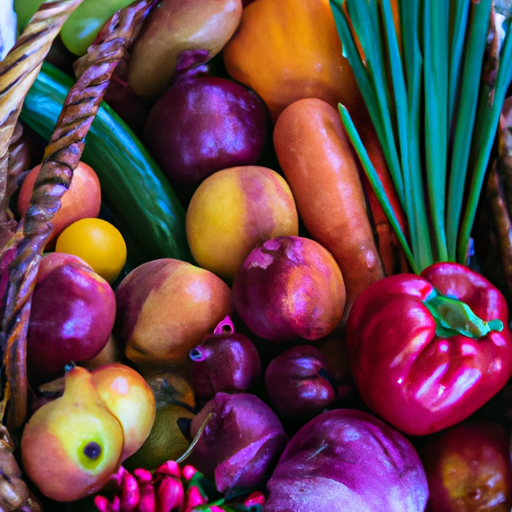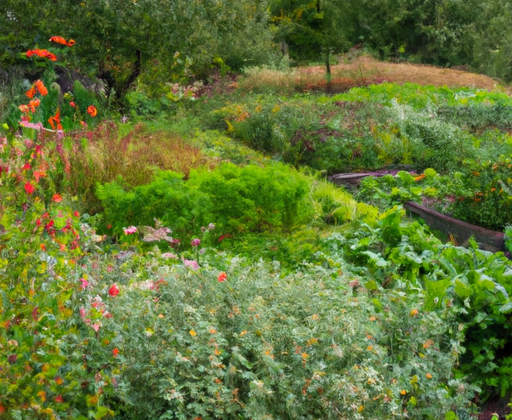Why the Future of Food Security Matters So Much to Me
For me, food security means having access to enough safe and nutritious food to lead a healthy life. Unfortunately, this is not a reality for millions of people around the world. As someone who believes in the importance of taking care of our planet and its inhabitants, the issue of food security is near and dear to my heart.
Food security is important for the future because it is essential to human survival. Without access to sufficient food, people cannot lead healthy lives or reach their full potential. Additionally, food security is necessary for social stability and economic growth. Countries that do not have adequate food supplies are often plagued by hunger, malnutrition, and poverty, which can lead to social unrest and economic decline.
Right now, millions of people around the world are facing food insecurity due to a variety of factors, such as climate change, overuse of land and water resources, and population growth. In order to ensure a bright and healthy future for ourselves and for generations to come, we need to take action to address these issues and improve food security worldwide.
In this blog, I want to explore the challenges that threaten food security and offer some ideas for what individuals and governments can do to address this critical issue. Together, I believe that we can create a world where everyone has access to enough nutritious food to thrive.
That Climate Change thing? It’s messing with our food!
Ok, let me break it down for you. Rising temperatures are making it harder and harder for farmers to grow crops. It’s like trying to bake a cake but your oven keeps getting hotter and hotter so the cake burns or doesn’t rise properly. The same thing is happening with our food.

And don’t even get me started on extreme weather events. Hurricanes, floods, droughts, and fires are wreaking havoc on farms and crops. It’s like a tornado came through your kitchen and destroyed all of your ingredients before you could even start cooking.
Basically, Climate Change is making it harder for farmers to grow food and it’s also making the food that is produced less nutritious. We need to do something about it before it’s too late.
Oh no! We’re using up land and water!
Guys, I gotta tell you, we’re not doing a great job taking care of our land and water resources. So much of our soil has been overused and depleted of nutrients, and we keep using pesticides and fertilizers that can pollute our water sources. It’s like we’re not thinking about the future of our food production.
And it’s not just that we’re degrading our soil and water quality, we’re also using up so much land to build homes, shopping centers, and factories. As our population grows, we’re running out of land to use for farming. It’s not like we can just create more land, right?
So what does this mean for our future food security? Well, it means that we’re going to have to be more strategic about how we use our land and water resources. We need to focus on sustainable agriculture practices that help rebuild our soil and preserve our water sources. We need to think about ways to make our land more productive without harming the environment.
So let’s get on it, folks! There are solutions out there, like crop rotation, cover crops, and low-till farming, that can help us take care of our land and water. We just need to make sure we’re doing everything we can to protect our resources so that we can continue to produce food for generations to come.
Why Population Growth Affects Future Food Security
Population growth is a serious issue that impacts the future of food security. As the world’s population increases, so does the demand for food. Without proper planning, the world may not be able to produce enough food to meet the needs of a growing population.
Currently, the world’s population is expected to reach 9.7 billion by 2050. This means that there will be more people than ever before who need access to food. As more people compete for the same resources, the prices of food products are likely to increase, making it more difficult for low-income families to afford a well-balanced diet.
Population growth also affects the supply of available agricultural land. As more people move into urban areas, there is less land available for farming. This means that farmers will have to rely on less fertile land to grow crops, leading to lower crop yields and lower quality produce.
To address the issue of population growth and food security, individuals can take actions such as advocating for sustainable family planning policies and supporting local food systems. Governments can also implement policies to address population growth, such as promoting women’s education, investing in family planning services, and supporting sustainable agricultural practices.
It is important that we address the issue of population growth and food security as soon as possible to ensure a sustainable and equitable food future.
Wrapping it Up: Why Food Security Must be a Priority
After delving into the various factors that affect food security, it’s clear that this is a topic that concerns us all. As the world population continues to grow, and climate change and overuse of resources become more pressing issues, it’s crucial to prioritize food security to ensure that everyone has access to enough nutritious food.
It’s important to note that food security isn’t just an issue for developing countries, but a global one. Increased investment in research to improve crop yields, sustainable agriculture practices and better management of land and water resources, can all contribute to ensuring future food security.
However, it’s not just up to governments to address the issue of food security. As individuals, we can also make a difference. Reducing food waste, buying locally grown produce, and supporting sustainable farming practices are just some of the ways we can contribute to a more food-secure world.
In conclusion, we must recognize the importance of food security and take action to address the various challenges that threaten it. By doing so, we can ensure that future generations have access to enough food to live healthy and productive lives.
Food Security FAQs
What are the future problems with food?
Well, let me tell you, I’m pretty worried about the future of food. With the world’s population growing at an alarming rate, there’s a lot of pressure on our food systems to keep up. And to make matters worse, climate change is wreaking havoc on our crops, with extreme weather events becoming more common and unpredictable.
One of the biggest problems we’ll face in the future is food insecurity – basically, not having enough food to go around. This isn’t just a problem for people in developing countries – it’s a concern for all of us. As our population grows, our demand for food will increase, but our resources may not be able to keep up. Plus, with climate change disrupting agriculture and food supply chains, we could see more and more people going hungry.
Another issue is the lack of diversity in our diets. As we rely more heavily on a few staple crops like wheat, rice, and corn, we’re missing out on the nutritional benefits of other foods. This can lead to malnutrition and other health problems down the line. Not to mention, monoculture (growing just one crop in a given area) can lead to soil depletion, pest outbreaks, and other ecological problems.
Overall, the future of food is a complex and worrying issue. But there are things we can do to mitigate the risks, like investing in sustainable agriculture, reducing food waste, and promoting healthier, more diverse diets. It’s up to all of us to take action and make sure we’re not facing a world where food is scarce and unhealthy.
Will we need food in the future?
Well folks, let me tell ya, we sure are concerned about food in the future! And let me tell you why – because we are gonna need it!
I mean, think about it. Our population is growing at a rapid pace, and we gotta feed all these mouths. Plus, with climate change and all the unpredictable weather patterns, it’s getting harder and harder for farmers to grow crops and raise livestock. We gotta come up with new ways to produce food that are sustainable and efficient, or else we’re gonna have some serious food shortages on our hands.
But it’s not just about feeding our growing population. We also gotta think about the quality of our food. With all the processed and unhealthy foods out there, we gotta make sure we’re providing people with nutritious and safe options. And with advancements in technology and science, we have the potential to create even better food that can nourish our bodies and keep us healthy.
So yeah, folks, we’re definitely concerned about food in the future. But I’m hopeful that we can come up with some innovative solutions to feed our growing population and improve the quality of our food. We just gotta keep working together and keep our minds open to new ideas!
What is the biggest threat to future food security?
I think there are many reasons why we are concerned about food in the future. One of the main reasons is the growing global population, which means there will be more mouths to feed. Another reason is climate change, which can cause extreme weather events, droughts, and other environmental changes that can affect crop yields. Additionally, there are some concerns about the sustainability of current farming practices and the use of pesticides, fertilizers, and other chemicals in food production.However, I believe the biggest threat to future food security is the lack of diversity in our food system. Many crops rely on just a few varieties, and this can make them vulnerable to pests, diseases, and changes in climate. Additionally, monoculture farming practices can deplete soil nutrients and reduce biodiversity. This can be a problem because diversity in crops and farming methods can help us adapt to changing environmental conditions and provide a more resilient food system.To address this issue, experts recommend promoting agro-biodiversity, which means promoting the use of a wider range of plants and animals in food production. This can include growing more diverse crop varieties, supporting local farmers markets and community supported agriculture programs, and encouraging the adoption of regenerative farming practices. By increasing agro-biodiversity, we can help ensure the long-term health, resilience, and sustainability of our food system.

